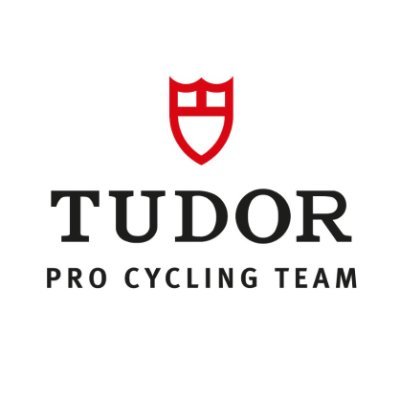
Tim Podlogar
@timpodlogar
Followers
4K
Following
6K
Media
50
Statuses
1K
Lecturer at @UniofExeter. Nutrition Consultant for @TudorProCycling. Always hungry, always foolish.
Exeter, UK
Joined May 2010
2nd KIWApplied is Out! "How to Fuel a World Tour Cycling Time Trial" - By @RitaCivil and @timpodlogar 👇 https://t.co/yrOWIpeOld
0
1
7
🚴♂️ Breakfast may not “top up” liver glycogen as quickly as you might think. Excited to share our new study, now online (in press) in the American Journal of Physiology – Endocrinology and Metabolism: https://t.co/kGl3mnTM0l
2
20
82
Trust me, I calibrated all the devices... He is simply amazing. If only he became a professional rider... https://t.co/E228yHZ4fO
1
2
35
Exercise Physiology testing now available at @UniofExeter With me and @AndyBeetroot
https://t.co/rUSHRQvamB
news.exeter.ac.uk
From amateur enthusiasts to elite athletes, world-leading sports physiology experts at the University of Exeter have launched a new service to help unlock their potential and boost performance....
1
2
30
Always great to see @timpodlogar on YouTube talking carbs. What They Don’t Tell You About High Carb Fuelling https://t.co/b1WmXAbPgr via @YouTube
0
1
6
Whether riding the Tour, competing at the Women’s Euro, or logging your summer training hours - athletes are pushing their limits every day. And to train with high quality, recover well, and adapt over time, they need the right fuel. A thread on how to do that, practically 👇🧵
1
2
10
🚴♂️Nduranz just got back from Eurobike 2025—and honestly, it exceeded all expectations. Thousands of visitors. A few celeb moments. Probably a world record for the most times saying “carbs” in one day. 😅 We went expecting to teach the public about sports nutrition. But it turns
0
2
14
Benji Naesen raced on Zwift every day until he won. Spoiler: It took a while. Even stranger? He gained weight doing it. 😮 What happened? We break it down in the latest Nduranz Podcast with @timpodlogar & @ARhodesRacing + @BenjiNaesen We also talk about: 🍽️ Fueling + weight
1
2
10
How do you make the impossible possible? Our latest research article: "Seven (.65) Seconds Away: The Possibility and Physiology of a Women's Sub-4 Minute Mile." https://t.co/Vzsh0FxUx6 Faith Kipyegon will make her attempt at the Stade Charlety in Paris, on June 26.
2
8
21
🚨 New Review Published! Our latest narrative review in @SportsMedicineJ explores nutritional strategies to enhance post-exercise recovery and subsequent performance. We discuss the roles of most nutrients in the process 📖 Read more:
link.springer.com
Sports Medicine - Post-exercise recovery strategies influence the body’s ability to restore physiological homeostasis, replenish energy stores, repair muscle damage, and promote desired...
2
35
134
8/ Big thanks to the whole team behind this work! 📄 Full open-access paper here: 🔗 https://t.co/2AVVOcBAzu Let’s move beyond “1-size-fits-all” fueling strategies. #SportsScience #Nutrition #Endurance #CHO #PersonalisedNutrition #OpenAccess
performancenutrition.biomedcentral.com
Background Carbohydrate (CHO) feeding during prolonged exercise is well-established for its ergogenic effects primarily by maintaining glycemia and carbohydrate oxidation. Current CHO intake guidel...
2
3
14
7/ Why this matters 👇 Personalising CHO intake could: ✅ Improve performance ✅ Reduce GI distress ✅ Optimise fuelling for training & racing
1
1
6
6/ This approach has already informed nutrition strategies for a Grand Tour winner 🏆 And soon, this service will be available at both the @UniofExeter and @unibirmingham with myself and @gareth_wallis. https://t.co/d5KKOmvyj4
sites.exeter.ac.uk
Welcome to the Sports Physiology and Exercise Testing (SPET) service at the University of Exeter—where science meets performance. Whether you're an amateur enthusiast or an elite athlete, our...
1
1
7
5/ And yes—we found that personalisation is not only possible, it’s practical. This method allowed us to fine-tune glucose delivery to match individual utilisation capacity—not just what the gut can “tolerate.”
1
1
3
4/ In our latest study, we tested whether we could personalise glucose intake during exercise based on individual oxidation responses. Why GLU? 👉 It’s the main CHO source used in most sports products 👉 Knowing how you use it helps tailor mixed-CHO strategies (e.g. GLU:FRU)
1
1
4
3/ Prior work suggested a link between body size and CHO oxidation https://t.co/RlLRMLSp4j, but it doesn’t tell the whole story. There’s still huge unexplained variability. Which got us thinking...
pubmed.ncbi.nlm.nih.gov
There is little evidence that body size alters exogenous glucose oxidation rates during exercise. This study assessed whether larger people oxidize more exogenous glucose during exercise than smaller...
1
1
3
2/ BUT—peak CHO oxidation rates vary widely between individuals. And that matters. Just because you can tolerate high CHO doesn’t mean you can absorb it efficiently. We need to stop treating these as the same thing.
1
1
5
1/ High CHO intake (90–120 g/h) during endurance exercise has become standard for performance & recovery. In fact, we’ve previously shown that bumping CHO from 90 to 120 g/h increases exogenous CHO oxidation in highly trained athletes: 📄
pubmed.ncbi.nlm.nih.gov
The results suggest that carbohydrate ingestion at 120 g h-1 in 0.8:1 fructose-maltodextrin ratio as compared with 90 g h-1 in 1:2 ratio offers higher exogenous carbohydrate oxidation rates but no...
1
4
9
🚨 New paper out! Can we personalise carbohydrate intake during endurance exercise to maximise its utilisation? Turns out… we can. 🧵👇 🔗 https://t.co/2AVVOcBAzu
@gareth_wallis @Gonzalez_JT and Natasha Cooper-Smith
performancenutrition.biomedcentral.com
Background Carbohydrate (CHO) feeding during prolonged exercise is well-established for its ergogenic effects primarily by maintaining glycemia and carbohydrate oxidation. Current CHO intake guidel...
5
43
171
What’s your dream? 💭 Our dream is becoming a reality. We’ll be at the start of the Tour de France 2025💛 #TudorProCycling #BornToDare
9
44
392












